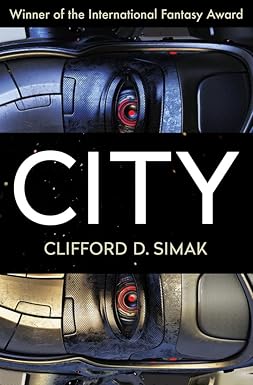
Continuing my "Read all these Clifford D. Simak books I bought long ago and never read" project… This was a 60¢ Ace paperback, purchased in the early 1960s. (It might be good for a couple more readings before it falls apart.)
Wikipedia calls City a "fix-up novel", a collection of eight short stories originally published in Astounding between 1944 and 1951. The tales span thousands of years, and they are linked by learned commentaries from scholarly robot-aided dogs. (The scholars have names like Bounce, Tige, and Rover.) Man has long since vanished from the scene, so long ago that human existence is seen as probably a myth.
The stories tell how technology allowed humanity to abandon cities, and eventually Earth itself. Each details a step in Man's progress, eventually leading to his (near?) demise. Or at least to a location where he's not easily found. A continuing character throughout is the robot "Jenkins", who's responsible for giving dogs the power of speech. (The doggies still need robots for their manual dexterity, though.)
Simak's prose is pretty flowery at spots, very unexpected for a no-nonsense SF mag like Astounding, I would have thought. I was not as captivated as I should have been by some of the later yarns.
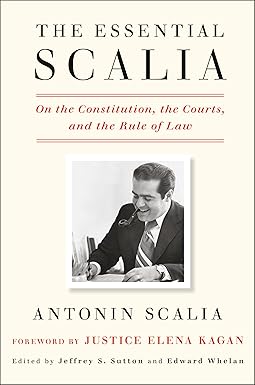
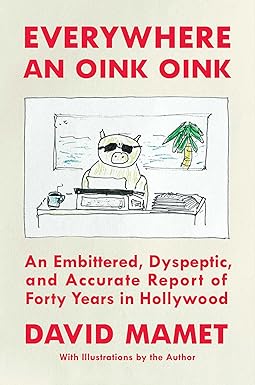
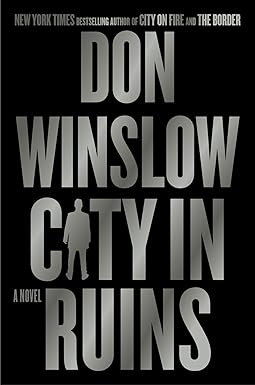
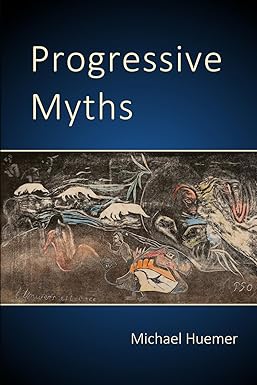
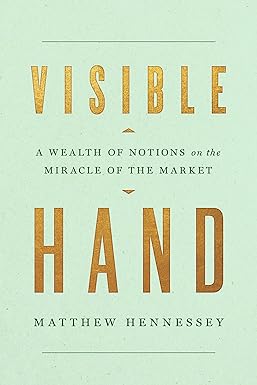
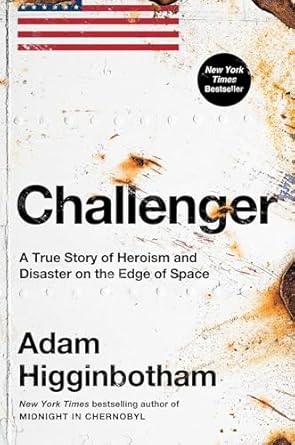
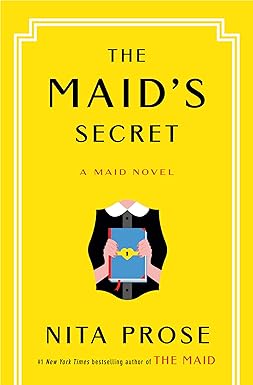
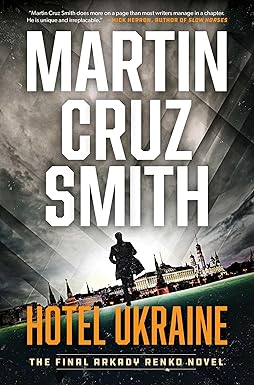
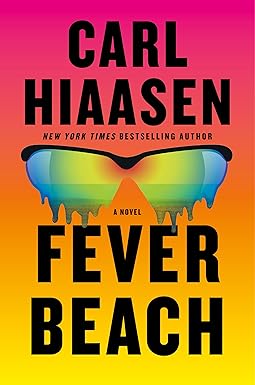
![[The Blogger]](/ps/images/barred.jpg)



